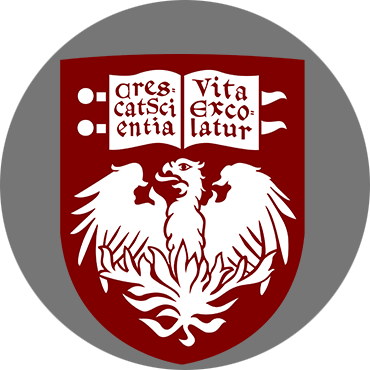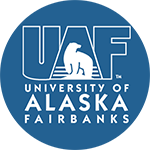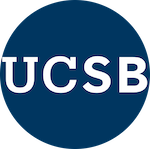Assistant Professor of American Indian Studies, San Diego State University
The property
Assistant Professor of American Indian Studies
San Diego State University: Arts and Letters: American Indian Studies
Location: San Diego
Open Date: Sep 19, 2024
Description
The Department of American Indian Studies at San Diego State University, situated on the traditional homelands of the Kumeyaay Nation, invites applications for a tenure-track Assistant Professor of American Indian Studies to teach a variety of interdisciplinary courses in American Indian Studies. Applicants must demonstrate expertise in teaching and research from a decolonial perspective, proficiency in Ethnic Studies methodologies, and the ability to teach classes that count towards the new CSU Ethnic Studies Graduation Requirement. Applicants must be able to build and maintain partnerships with Indigenous communities and demonstrate interest in collaborative research. Research connected to California Indian communities is preferred, but not required. The Department has a particular need and interest in research related to visual sovereignty, art and activism, Native literature and literary studies as well as language revitalization. Applicants should demonstrate an active research agenda, a publication record, and leadership potential and capabilities. Applicants with a terminal degree will be considered (e.g. Ph.D., Ed.D., or MFA).
The minimum salary for this position is based on the current CSU salary schedule for Assistant Professors and may be revised based on contract collective bargaining. The anticipated salary range is from $81,000 to $85,000. Salary placement will be based on the selected candidate’s qualifications and experience, and salaries higher than the published maximums may be offered in limited circumstances. San Diego State University offers a rich benefits package that constitutes a major portion of total compensation. For benefits information, click here
The committee will begin reviewing applications on November 1, 2024.
Qualifications
We are seeking applicants with demonstrated experience in and/or commitment to teaching and working effectively with individuals from diverse backgrounds and members of underrepresented groups. Candidates must satisfy two or more of the eight Building on Inclusive Excellence (BIE) criteria. Candidates that meet BIE criteria: (a) are committed to engaging in service with underrepresented populations within the discipline, (b) have demonstrated knowledge of barriers for underrepresented students and faculty within the discipline, (c) have experience or have demonstrated commitment to teaching and mentoring underrepresented students, (d) have experience or have demonstrated commitment to integrating understanding of underrepresented populations and communities into research, (e) have experience in or have demonstrated commitment to extending knowledge of opportunities and challenges in achieving artistic/scholarly success to members of an underrepresented group, (f) have experience in or have demonstrated commitment to research that engages underrepresented communities, (g) have expertise or demonstrated commitment to developing expertise in cross-cultural communication and collaboration, and/or (h) have research interests that contribute to diversity and equal opportunity in higher education. Please indicate in your cover letter how you meet at least two or more of these criteria.
SDSU is the oldest institution of higher education in the San Diego region, with a campus in San Diego serving 36,000 undergraduate and graduate students and additional locations in Southern California’s Imperial Valley and Tbilisi in the Republic of Georgia. SDSU is included in the Carnegie Foundation’s Doctoral Universities: High Research Activity category. Established in 1897, SDSU offers bachelor degrees in 97 areas, masters in 84 and doctorates in 23. See http://www.sdsu.edu for more information. SDSU is a large, diverse, urban university, an Asian-Native American-Pacific Islander -Serving Institution and a Hispanic-Serving Institution with a commitment to diversity, equity, and inclusive excellence. Our campus community is diverse in many ways, including race, religion, color, sex, age, disability, marital status, sexual orientation, gender identity and expression, national origin, pregnancy, medical condition, and covered veteran status. We strive to build and sustain a welcoming environment for all.
Application Instructions
Apply via Interfolio at http://apply.interfolio.com/154405
The committee will begin reviewing applications on November 1, 2024.
Candidates should submit the following:
- Cover letter
- Curriculum vitae
- Research statement
- Diversity statement
- Teaching statement
- Writing sample
- Three letters of recommendation
As part of its commitment to a safe and equitable “OneSDSU” community, SDSU requires that individuals seeking faculty employment provide at the time of application authorization to conduct background checks if they become a finalist for the position; applications without this authorization will be considered incomplete and not considered.
A background check (including a criminal records check) must be completed before any candidate can be offered a position with the CSU. Failure to satisfactorily complete the background check may affect the application status of applicants or continued employment of current CSU employees who apply for the position.
The person holding this position is considered a “mandated reporter” under the California Child Abuse and Neglect Reporting Act and is required to comply with the requirements set forth in CSU Executive Order 1083 as a condition of employment.
No Comments
Listing Location
More from this employer
Indigenous Futures Conference 2025
Computer Engineering – Assistant Professor
Related listings




















Sorry, the comment form is closed at this time.